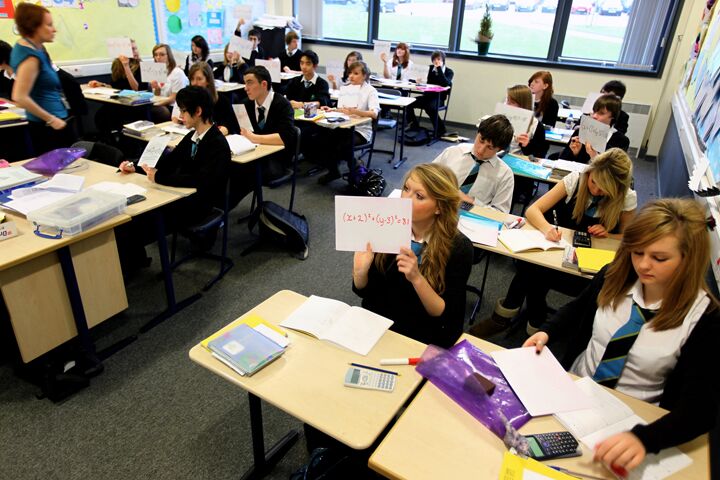
British Government Reacts to Out-of-Control School Violence
As violence in British schools reaches stunning heights, the UK’s Department for Education has released new guidance, telling teachers they can use reasonable force against unruly students.
There were 12,688 acts of grievous bodily harm (gbh) or actual bodily harm (abh) reported in schools in England last year, the Daily Mail reported July 12. That’s 65 cases every day. “The true level of violence could be much higher as many bullied victims fear revealing the identity of their attacker,” the Mail writes.
In 2008/2009, nearly 1,000 pupils were suspended from school every school day because of abuse or assault, according to figures published by the Department for Education. The year before the number was 452.
In 2010, 44 teachers went to hospital with serious injuries. No wonder two thirds of teachers say that bad behavior is driving teachers away from the profession.
In the face of these kinds of numbers, the government has finally decided to act. The new 52-page guidelines, released July 11, replace a 600-page document and forbid the “no touch” policies that exist in many schools that don’t let teachers lay a hand on pupils.
The guidelines clarify that teachers can use force “to prevent pupils from hurting themselves or others, from damaging property, or from causing disorder.” This means that disruptive children can be physically removed from classrooms and teachers can intervene to break up fights, for example.
Teachers should “always try to avoid acting in a way that might cause injury, but in extreme cases it may not always be possible to avoid injuring the pupil.”
The guidelines also make it easier for teachers to defend themselves from false accusations. A 2009 survey by the Association of Teachers and Lecturers found that almost 30 percent of school staff had been falsely accused of misconduct.
The guidelines state that head teachers can suspend pupils for making a false allegation and can get the police involved if the pupil has committed a criminal offense. Schools should not include unfounded allegations in a teacher’s reference, they state.
These measures reveal just how serious the problem of violence within schools in Britain has become. However, teachers are still forbidden, by law, to use corporal punishment.
Children are becoming violent before they even get to school, according to Dr. Aric Sigman, a fellow of the Royal Society of Medicine. The age when they become violent and abusive to their teachers “is coming down to nursery level,” he said. “They’re swearing and throwing chairs at their teachers at younger and younger ages.”
It all comes down to the home life of these children.
After analyzing reports and studies from the United States, UK and New Zealand in order to update his book The Spoilt Generation, Sigman concluded that “Parent abuse and parent battery appear to be on the rise and what seems to underlie this is to do with parenting, the lack of boundaries and the reversal of authority.”
“It’s the extreme end of the spoilt generation where they actually lash out at parents, almost exclusively their mothers,” he says. “There’s a lack of impulse control, demands for instant gratification and not accepting deferred gratification.” He continues:
There’s been a change, it’s getting worse and it’s going further down the age scale.
I’m talking about younger and younger children, including girls, beating up their mothers and kicking them down the stairs. Mothers are ashamed to ask for help.
The cause of this epidemic of child violence is a complete lack of discipline, both at home and in schools. The government’s new guidelines go a small way toward restoring that discipline, but schools are still barred from effectively punishing children, and parents won’t. The result is a society foretold in Isaiah 3:12: “As for my people, children are their oppressors, and women rule over them ….”
For practical advice on how to avoid these kinds of problems in your home, see the “Living” section of our webpage, that is regularly updated with articles on family life and child rearing.
